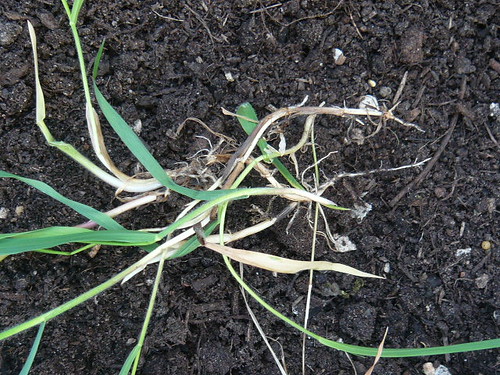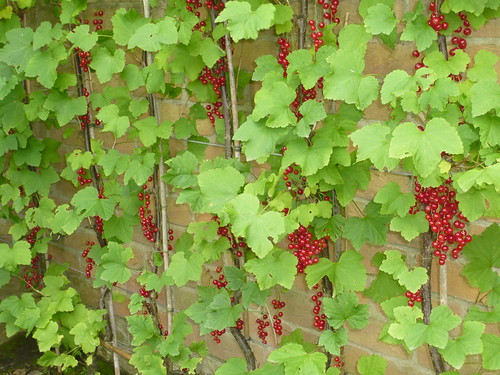Gardeners Year for Organic Fruit and Veg
‘Organic Fruit and Vegetable Gardeners Year, The A Seasonal Guide to Growing What You Eat’ by Graham Clarke
Yesterdays Gardeners Question Time on radio 4 featured many questions on this subject. The main advice that appealed to me was to concentrate on growing more fruit. (We all more likely to take the advice we want to hear.)
Gardeners Tips on Organic Fruit Growing
Organic Principles
Organics should sustain and enhance the health of soil, plant, animals and humans as one.
Organic growing is based on ecological systems and cycles that are worked with and sustained.
Organic gardening should be done in a precautionary manner to protect the health and well being of current and future generations.
Organics promotes the concept of fairness with regard to common environment and life opportunities.
Soil Fertility
Chemical fertility is the availability in the soil of all the elements, nutrients, ions, Â traces and inorganic chemicals that plants need to grow.
Biological fertility includes micro organisms that help nutrient recycling’ including fungi, bacteria and protozoa that clean up bacteria. It also covers macro organisms such as arthropods that break down organic matter in the early stages of decomposition, worms that help drainage and aeration and nematodes that help in various ways but  occasionally act as pests.
Physical fertility is the mix of sand, silt and clay that makes up the soil and determines texture, ability to hold water and sustain life.
Weed Management …


